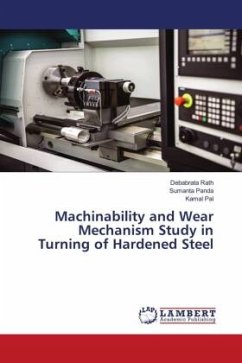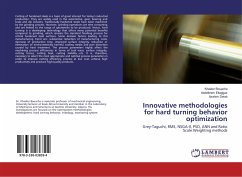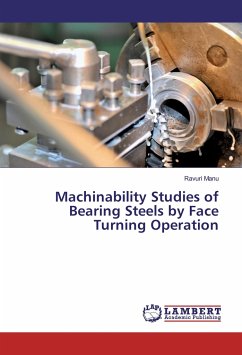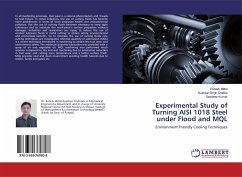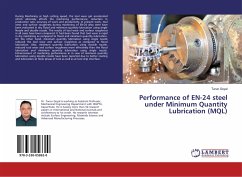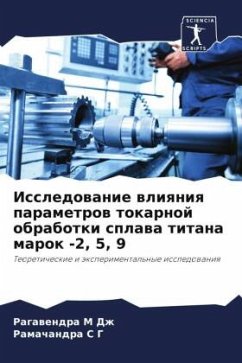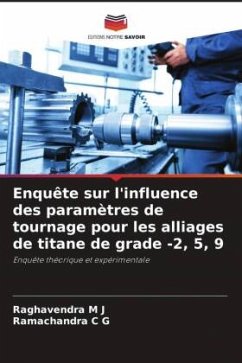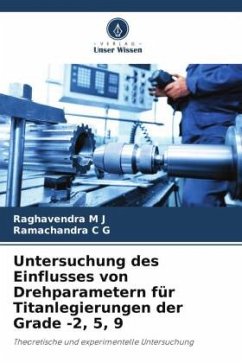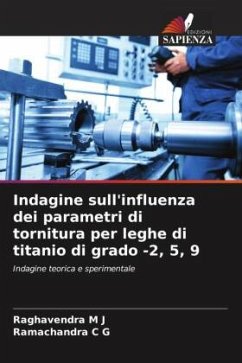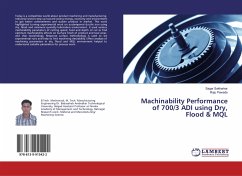
Machinability Performance of 700/3 ADI using Dry, Flood & MQL
Versandkostenfrei!
Versandfertig in 6-10 Tagen
36,99 €
inkl. MwSt.

PAYBACK Punkte
18 °P sammeln!
Today is a competitive world about product machining and manufacturing. Industrial sectors step up toward saving energy, economy and environment to get better achievements and sustain product in market. This work highlighted turning experimental work on austempered ductile iron using dry, flood and minimum quantity lubrication environment. it used various machinability parameters of cutting speed, feed and depth of cut to find optimum machinability effects on Surface finish of product and tool wear, and chip morphology. Response surface methodology is used to set experimental runs and help to ...
Today is a competitive world about product machining and manufacturing. Industrial sectors step up toward saving energy, economy and environment to get better achievements and sustain product in market. This work highlighted turning experimental work on austempered ductile iron using dry, flood and minimum quantity lubrication environment. it used various machinability parameters of cutting speed, feed and depth of cut to find optimum machinability effects on Surface finish of product and tool wear, and chip morphology. Response surface methodology is used to set experimental runs and help to find machining desirability. Effect analysis of machining parameters in dry, flood and MQL environment helped to understand suitable parameters for process work.



